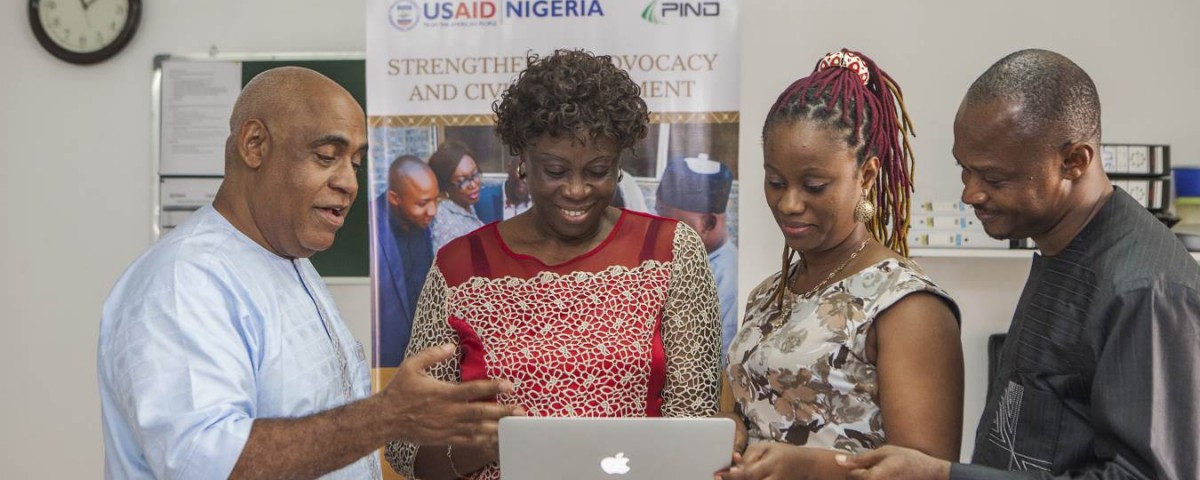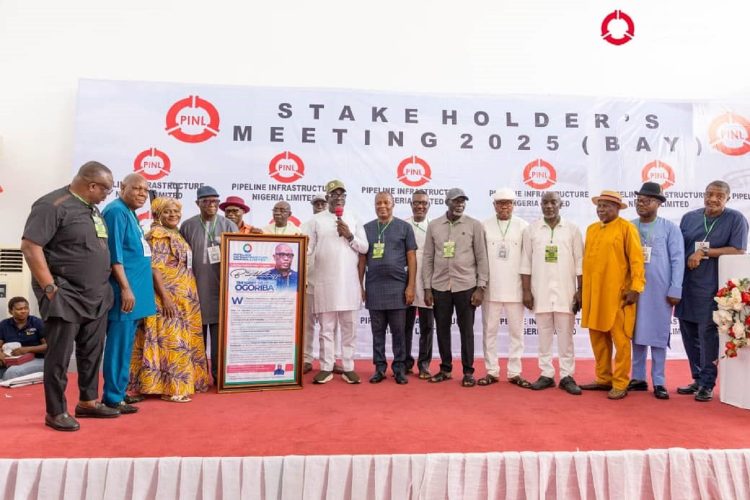
PIND Foundation holds workshop on oil palm seeds linkage
November 21, 2018USAID Announces Winners of the Feed the Future Fall Armyworm Tech Prize
November 23, 2018
The Strengthening Advocacy and Civic Engagement (SACE) project commenced in January 2014 and, ever since, it has been a progression from achieving results to recording impressive outcomes and making sustainable impacts.
The governance project, funded by the United States Agency for International Development (USAID) and the Partnership Initiatives in the Niger Delta (PIND) foundation, has been rightly described by many as a good success.
“The SACE tools are very effective not just on our project with SACE but we embedded these tools into our organisation framework for networking and tracking our outcomes in other donor-funded projects,” enthuses Chidi Ugwu of the Health Reform Foundation of Nigeria (HERFON).
“In fact, it’s part of the training we give to new programme staff when they are employed.” Chidi’s organisation is one of 157 Civil Society Organisations (CSOs) that have directly benefited from the capacity building activities of SACE over the years.
The project, as its name implies, has indeed strengthened their capacity, opened their eyes to new models and afforded them resources crucial to achieve their set goals.
“The SACE approach catalysed a transformation in our advocacy approach and led to significant gains in our journey to policy reform on Open Budget in the Niger Delta,” affirms Ken Henshaw, Coordinator of Social Action.
The Programme Officer of Social Development Integrated Center, Isaac Botti, also testifies that the project has allowed them learn how to use the Policy Tracker to monitor the progress of projects. “We will continue to use this tracker going forward as it helps us to keep tabs on other development issues we are advocating,” he says.
READ ALSO: PIND Foundation holds workshop on oil palm seeds linkage
PIND Has Affected over 50,000 Farmers in Niger Delta – Tunji Idowu
Other advocates and civil society actors such as Akeem Kelani of the Out of School Children Education Foundation and Yemisi Fasakin of the Kwara State Agricultural Practitioners Association of Nigeria, spoke enthusiastically about the influence of the project. The SACE project, as any project, has had an expiration date from the start – a life span of five years, and this ends in January 2019.
Onyeka Chukwudi, who works with Youth Alive Foundation, captures the mood of thousands of Nigerians when he declares: “It is sad to see it come to an end but its teachings will live on.” That the project will be brought to a close finally dawned on everyone when, on Thursday, a close-out ceremony was held at the Ladi Kwali Hall, Sheraton, Abuja, to celebrate its successes and signal its end.
As PIND Executive Director, Dara Akala rightly notes, “a big opportunity to amplify some of the unique achievements of SACE and more importantly, explore how the legacy of the SACE project can be sustained”. At the event, Charles Abani, the Chief of Party of SACE, says he thinks of the moment not as the end of a journey but simply “the end of the beginning”.
He explains that the aim of SACE has always been to increase the engagement and efficiency of CSOs, towards ensuring that public institutions serve the interests of citizens.
READ ALSO: USAID, PIND Develop Framework for Inclusive Growth in Niger Delta
In highlighting the achievements of the project, he says its activities have led to the training of 8,769 individuals, capacity building for 157 CSOs, positively reaching out to 120 million Twitter users, partnership and over 60 policy outcomes. The project has also triggered net organisational improvements across 56 groups, 44 out of which are situated in the Niger Delta.
“But the real story,” he adds, “is about amazing transformation in the way the society runs, a huge shift in how it works using collective impact and really speaking to that mantra: If you want to go fast go alone, but if you want to go far, go together.”
SACE’s Deputy Chief of Party, Lydia Odeh, corroborating Abani’s remarks, also says this is not really the end of the project because “we expect to see more in the future; we expect our partners to go out with all they’ve learnt and we expect all of you to go back and continue this wonderful work.
“Since our inception in 2014, we have strengthened Civil Society bodies to influence the development and implementation of key democratic reforms at the national, state and local levels,” she notes.
Culled from: Vanguard









